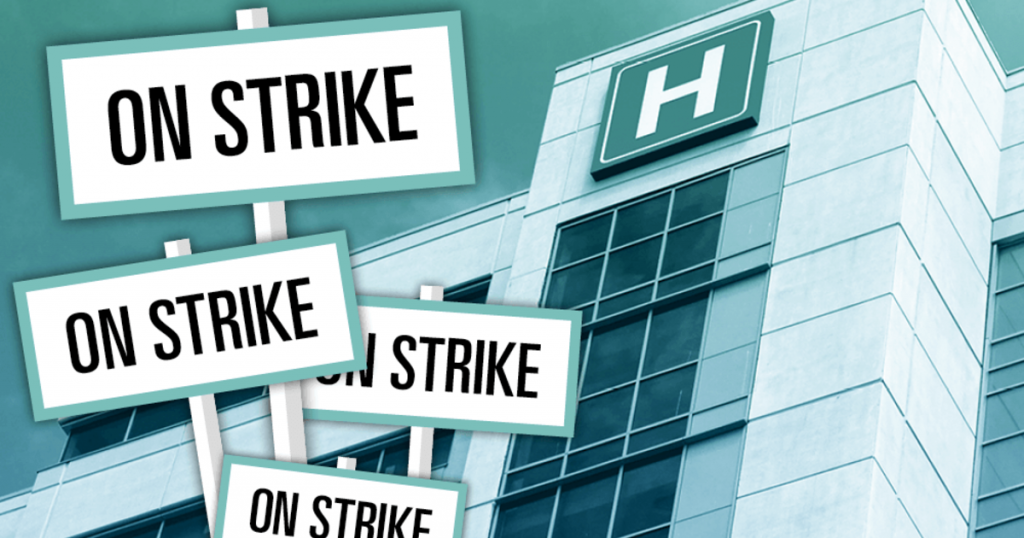California regulators placed Kaiser Permanente under investigation last week over reports the Oakland-based integrated health system is failing to accommodate mental health patients during an ongoing strike.
“The [Department of Managed Health Care] is concerned about the potential for immediate harm to enrollees based on the very serious nature of allegations that the plan is not providing timely appointments to enrollees required by the law,” a spokesperson wrote in an email. California received 19 complaints about access during the first five days after 2,000 mental healthcare workers initiated a strike on Aug. 15, according to the department. The state opened an enforcement investigation Aug. 22.
The striking therapists, chemical dependency counselors and social workers represented by the National Union of Healthcare Workers have been bargaining with Kaiser Permanente since July 2021 and working without a contract since September. “The key issue that has led to a strike by 2,000 mental health clinicians at Kaiser Permanente is the giant HMO’s denial or delay of care to thousands of patients in need,” Sal Rosselli, president of the National Union of Healthcare Workers, said in a statement. The union claims patients were waiting two to three months for appointments prior to the labor action.
California will monitor Kaiser Permanente during the strike to ensure it’s in compliance with state laws that require patients seeking mental healthcare receive intake appointments within 10 days and follow-up visits 10 days later. “The goal is to move as quickly as possible to ensure enrollees’ healthcare rights are protected. The department will follow the evidence and take all appropriate actions to protect enrollees,” the spokesperson wrote.
Kaiser Permanente is “using every resource available” to meet state requirements during the strike, including forming agreements with community-based mental health providers to help with demand, spokesperson Steve Shivinsky wrote in an email. About 40% of employees represented by the union are still working, he wrote.
The National Union of Healthcare Workers disputes that assertion. “Kaiser lies to patients about when they will get an appointment; they lie to state leaders about complying with California mental health access laws; and now they’re lying about how many therapists have crossed the picket line,” Matt Artz, a union spokesperson, wrote in an email.
The not-for-profit company also has a clinical quality review process in place to ensure patients get appropriate care, Shivinsky wrote. “While we are working hard to ensure we are able to meet our patients’ mental healthcare needs, NUHW has deliberately tried to create a crisis in access to mental healthcare for Kaiser Permanente and its members,” he wrote.
Dr. David Lin, president of the California Psychological Association, said when patients’ mental healthcare is delayed, acuity worsens and they must seek emergency services. “As a clinician, I don’t think I could feel ethical working there when I might have to push off a patient for weeks at a time,” he said. “It’s really unfortunate that the strike is happening, but in order to get attention sometimes these drastic measures need to be taken.”
